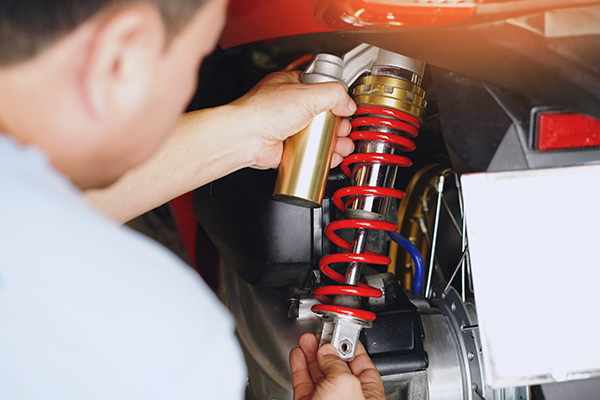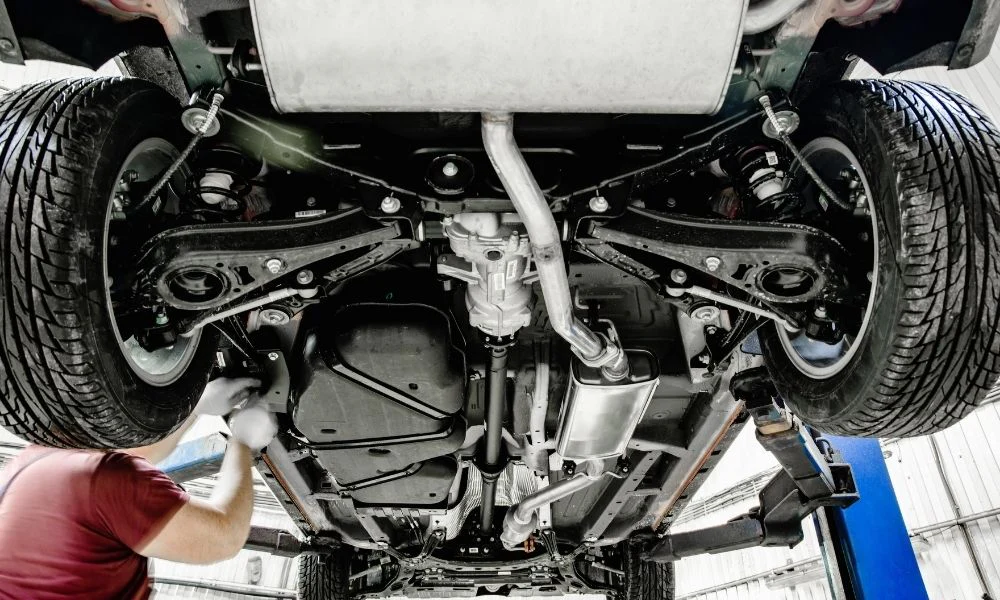You’re not alone if you’ve heard strange suspension sounds while driving. Clunks, rattles, and squeaks can make driving difficult. Your sway bar linkages may be making these sounds. This article will help you identify the issue, determine if sway bar linkages are the reason, and discuss the repercussions of ignoring it.
Understanding Sway Bar Links
Before diagnosing, you must understand sway bar links and their role in your car’s suspension. When turning, sway bars (anti-roll bars) reduce body roll and increase vehicle stability. Connecting the sway bar to the suspension allows the vehicle to efficiently distribute weight during movements. When worn, these connections can make noise and influence automobile handling.
Recognizing Noise Issues

Sway bar link issues might be detected by listening to your car’s noise. Malfunctioning sway bar links often cause clunking, a harsh sound heard during turns or bumps. Squeaking, a high-pitched sound that occurs in chilly regions or when the suspension is pressured, is another indicator. Rattling, a loose or vibrating sound on uneven roads, is another clue that your sway bar linkages need maintenance. These noises may indicate suspension system health. Choosing the Auto Repair in Logan, UT based service is essential here.
In addition to noises, other indications may suggest sway bar link issues. Increased body roll during corners, poor handling, or unsteadiness when driving are warning indicators. These car dynamics changes suggest the sway bar links aren’t stabilizing the suspension. The connection points may look worn, indicating linkage failure. These symptoms sometimes accompany mechanical sounds, requiring a more complete study.
Sway bar couplings can be physically examined to confirm the diagnosis. Loose connections, rusty metal, and fractured rubber bushings indicate wear. To detect excessive movement, which indicates wear or damage, gently shake the sway bar links. These issues must be addressed immediately to ensure safe and stable driving.
Sway Bar Link Verification as Origin
Check these specifics to confirm your sway bar links are making noise:
Bounce Test: Test the front or rear suspension with someone inside. When you press and release, listen for clunking. Loud sounds are usually caused by sway bar linkages.
Isolation Test: If you are doubtful, temporary disconnect the linkages of the sway bar (for further information, consult the service manual for your vehicle). In order to verify the noise, you should drive the vehicle under the identical conditions. You should check the connections of the sway bar if it stops.
Conclusion
Ignoring suspension system noises can cause bigger issues. If you suspect your sway bar links are making noise, fix them immediately. Not replacing damaged sway bar links may prolong noise and compromise automobile safety and control. Routine maintenance and inspections will keep your suspension in great shape and make driving safe. Do not hesitate to consult a trained mechanic if you cannot diagnose or remedy the issue.


